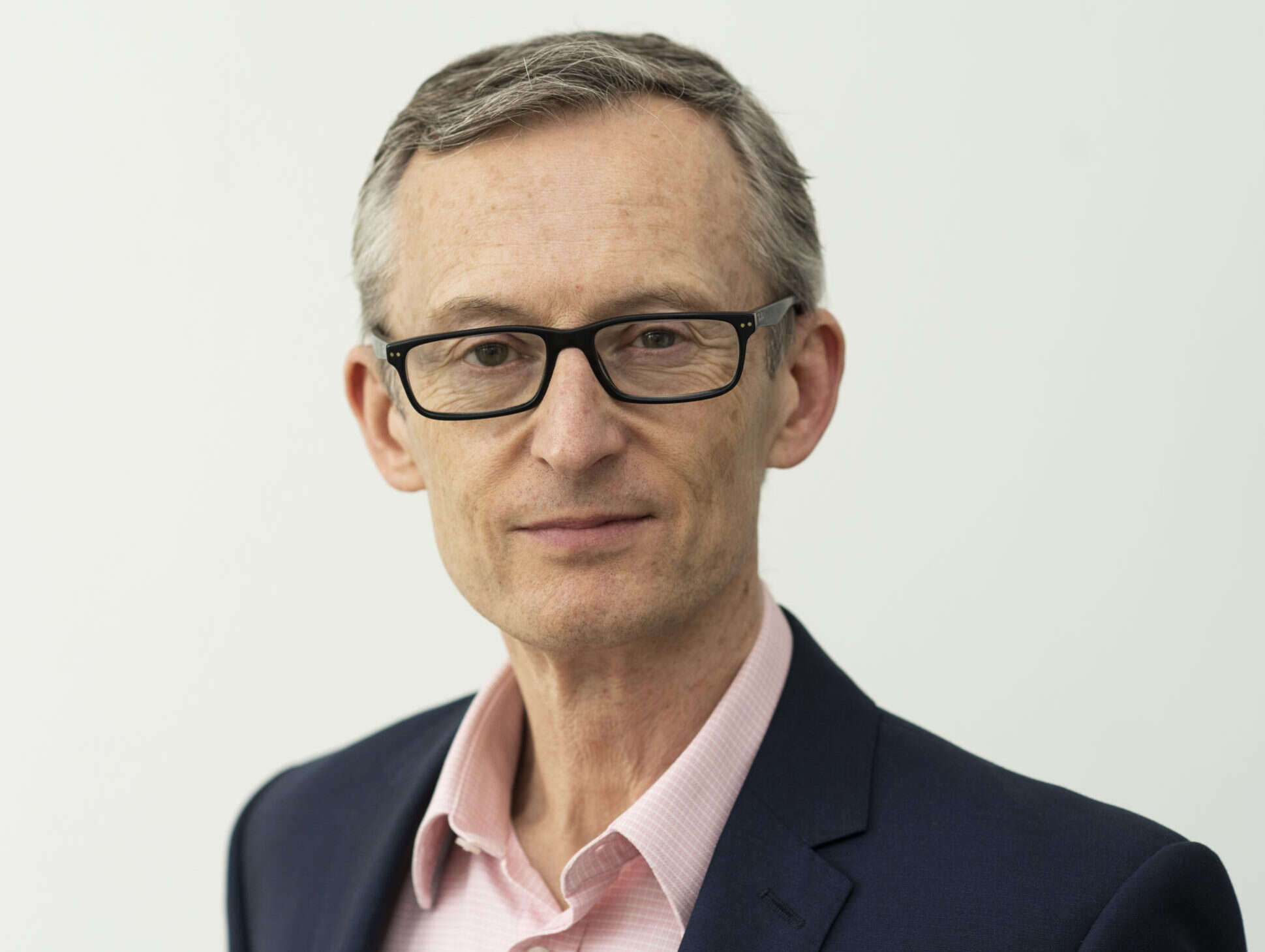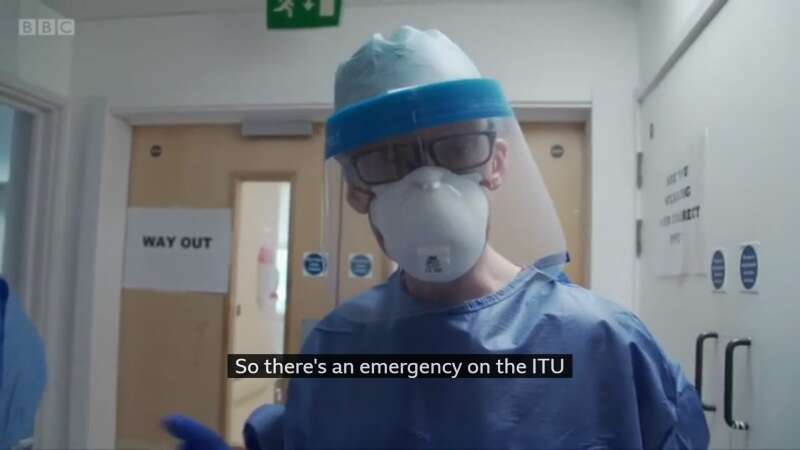
The BBC’s Fergus Walsh has said he was kept awake at night thinking about the coronavirus and the broadcaster’s coverage of the pandemic, which he has played a major part in shaping.
Walsh has been the BBC’s medical correspondent since late 2004 and is part of its health team, led by health editor Hugh Pym, with a remit to cover global disease threats, research and ethics.
He was in post when bird flu and swine flu emerged over the last decade, although neither turned out to be “the big one” as feared, so he told Press Gazette a pandemic “has been on my radar for a long time”. But he said Covid-19 “took everybody, to some extent, by surprise”.
Covering coronavirus ‘at times a bit overwhelming’
Walsh, 58, helped explain to the British public what “flattening the curve” of the virus peak meant as social distancing measures were put in place in March, in the early stages of the outbreak.
He has been a familiar face on the evening news bulletins and elsewhere on the BBC throughout the coronavirus crisis, which he said has been “extraordinary, unprecedented, at times a bit overwhelming”.
“What I’ve tried to do – what I always try to do – is give factual balanced information which doesn’t unnecessarily scare people,” he said. “So it’s meant to be calm, informative, authoritative.
“And although it’s not supposed to be opinionated, I do feel that, as I’ve been doing this job a long time, people are expecting my analysis.
“So I don’t think that it’s appropriate for me just to say: ‘so-and-so says this and so-and-so, says that’, but to try and convey what the weight of science is, so be guided by the science, which is a phrase you’ll have heard a lot.”
Walsh has also had a role in shaping the tone of the coverage, advising BBC bosses giving prominence to the first confirmed cases – and then the first victims – that it was “going to get much, much worse”.
The confirmed UK coronavirus death toll is over 30,000 at the time of writing.
Speaking to Press Gazette via video link from his home in Windsor on Friday, Walsh said the coverage had affected him personally.
“I am world champion sleeper normally, but I’ve found myself going to bed thinking about the story and thinking about coronavirus – thinking about the patients… the families… the staff, thinking about the way we’re covering it and what I haven’t done and what I could have done better and then waking up – completely awake – worrying about it,” he said.
“So there’s been some anxiety, which has sort of settled down now, but it was really quite bad at one point.”
Walsh, who is married with three grown-up children, took an early coronavirus antibody test wile on-air which showed he had had the virus at some point – in fact he’s tested positive twice.
But he says he has not experienced any symptoms of the virus, which include a persistent cough and a high temperature, since it arrived on UK shores and so is still not entirely sure if he’s had it or not.
The mental health of the country in lockdown is a key issue at the moment, but it has added importance for journalists who are both living and covering the story day-in, day-out.
Four in ten Press Gazette readers believe their mental health is suffering for work-related reasons during the lockdown, our recent poll revealed.
In order to escape the story, Walsh said he talks about it a lot with his family and tries to exercise – “fitness is really important to me” – or keep busy in his garden.
Fergus Walsh interview: ‘Huge sense of responsibility’ filming in coronavirus ward
Walsh said there was “relentlessness” to the daily coronavirus press briefings and although it was good to be able to put questions to ministers seven-days a week, it was “tricky” on a journalistic level to wrap up the volume of information being shared.
He added: “It can risk turning it into a political story at the cost of the story of the pandemic and the medical and the health side.”
From the start, briefings have mainly been attended by political journalists who are members of the Lobby – the group of reporters based in Westminster – with those same journalists often asking the questions.
He said the ministerial briefings “for quite a while” became “very much dominated by politics” and this was a source of frustration for him until his first report from inside an intensive care unit, which aired on 6 April.

Fergus Walsh reporting from a hospital ward caring for Covid-19 patients. Picture: BBC
“I felt at some point we were losing sight of the reality of what Covid-19 was doing. Now, there was a reason for that – the reason was that we weren’t getting access to hospitals and we weren’t seeing what was happening on the frontline.
“I eventually managed to get access to University College Hospital and go in and film in intensive care.
“When I went in there it was very shocking, genuinely shocking, to see what the disease was doing to patients and how it was impacting on the staff and I felt a huge sense of responsibility when I was in there filming with [cameraman] Adam Walker to get that message across.”
Walsh’s report, along with that by ITV News health correspondent Emily Morgan which aired the same night, provided the UK’s first look at the frontline in the fight against the disease and its impact on patients.
He said it was one thing to hear the “stay at home, protect the NHS, save lives” message from a politician at a podium, but “it’s quite another seeing what the staff are dealing with”.
He told Press Gazette the coronavirus ICU report is the “most important piece I’ve ever done in my career”. It has since been highlighted in Press Gazette’s Excellence in Reporting Coronavirus survey.
Walsh, who first joined the BBC in 1984, added: “I’ve gone into operating theatres all over the world, so my heart doesn’t start racing when I go into a hospital because it’s just normal life for me – a lot of people get nervous going to hospitals – and so operating theatres, I’m used to those.
“But walking in and seeing the operating table not there, and instead two intensive care beds, that really hit me like a hammer.”
He added: “I did find the whole experience very moving… no story has ever touched me like this one has or affected me as profoundly as this one has.”
Watch the full interview to hear Fergus Walsh’s views on wider media coverage of coronavirus, claims NHS staff have been silenced and his concerns about his own safety while reporting on Covid-19.
Read all Press Gazette’s coverage of the coronavirus pandemic and the news industry here
Email pged@pressgazette.co.uk to point out mistakes, provide story tips or send in a letter for publication on our "Letters Page" blog

